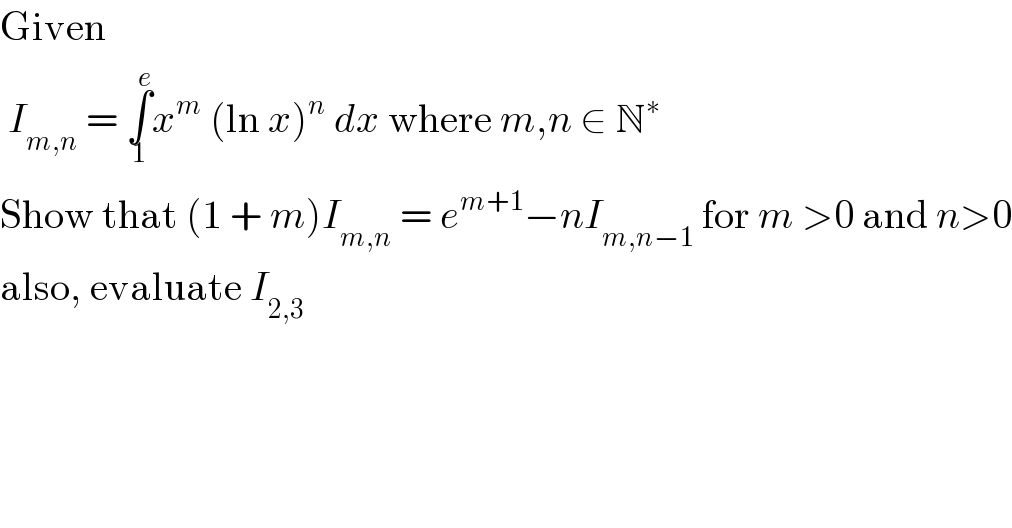
Question and Answers Forum
Question Number 107596 by Rio Michael last updated on 11/Aug/20

Answered by Ar Brandon last updated on 11/Aug/20
![I= ∫_1 ^e x^m (ln x)^n dx =[(lnx)^n ∫x^m −∫{((d(lnx)^n )/dx)∙∫x^m dx}dx]_1 ^e =[(((lnx)^n x^(m+1) )/(m+1))]_1 ^e −(n/(m+1))∫_1 ^e x^m (lnx)^(n−1) dx =(e^(m+1) /(m+1))−(n/(m+1))I_((m,n−1)) ⇒(m+1)I_(m,n) =e^(m+1) −nI_((m,n−1))](Q107597.png)
Answered by hgrocks last updated on 11/Aug/20

| ||
Question and Answers Forum | ||
Question Number 107596 by Rio Michael last updated on 11/Aug/20 | ||
 | ||
Answered by Ar Brandon last updated on 11/Aug/20 | ||
![I= ∫_1 ^e x^m (ln x)^n dx =[(lnx)^n ∫x^m −∫{((d(lnx)^n )/dx)∙∫x^m dx}dx]_1 ^e =[(((lnx)^n x^(m+1) )/(m+1))]_1 ^e −(n/(m+1))∫_1 ^e x^m (lnx)^(n−1) dx =(e^(m+1) /(m+1))−(n/(m+1))I_((m,n−1)) ⇒(m+1)I_(m,n) =e^(m+1) −nI_((m,n−1))](Q107597.png) | ||
| ||
Answered by hgrocks last updated on 11/Aug/20 | ||
 | ||